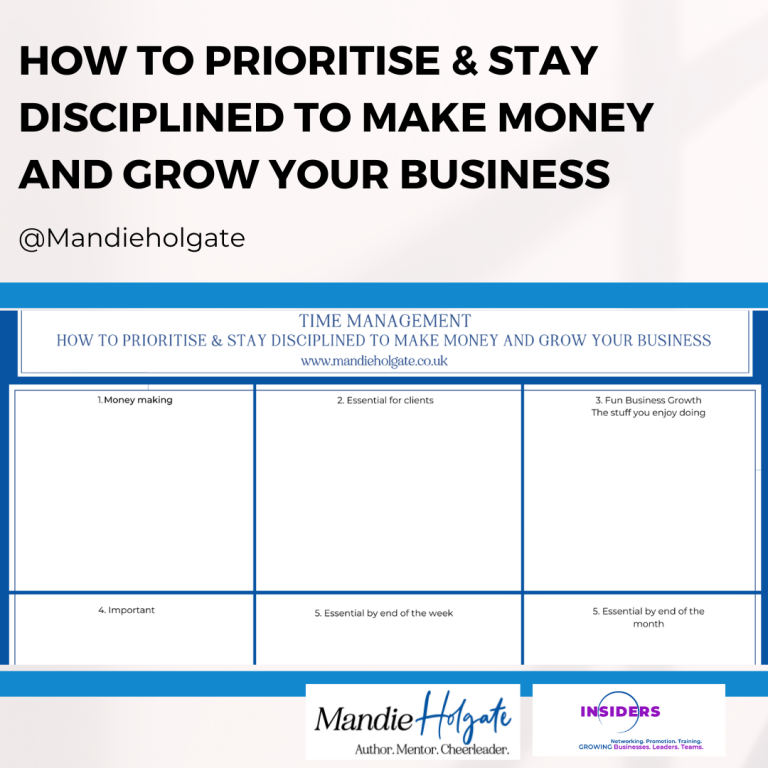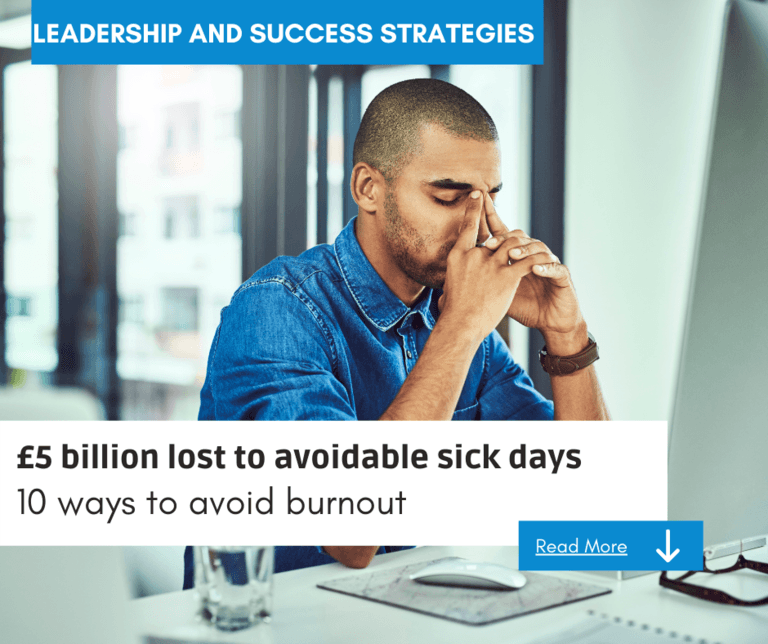Strategies to start your working week with – that power you to the weekend!
1. Proactive not reactive
Stop doing the thing you see first on your laptop/phone. Stop starting the day with what everyone else wants to tell you (i.e., email). This makes your day reactionary not proactive. You may have a job that requires you to know what everyone else needs but get savvy about this (see strategy number 2).
Otherwise, this is 1 reason you get to the end of the working day (week) with your to do list unfinished but everyone else happy!
2. Feelings fail your to do list and performance
By nature of being human you want people to like you, we all do. It’s written into our ancient Cave human DNA – this means we often prioritise others needs over our own. It’s good for making you feel appreciated and loved but bad for your performance and productivity. If you work alone or with a team, make sure you have a communication policy that enables quiet sessions so you can power on.
Did you know that when you complete things on your to do list, your brain gets a hit of good feel chemicals? This is why many write a list (See strategy 4 on why it may be not working for you and how to fix it). Think of your day and ask yourself where will there be time to be quiet and take highly focused action?
3. Communicate the communication policy
When you create a communication policy you are writing a document that encourages high performance and good working practices (this is a written document for many of my clients that enables large teams to work in various ways that are most responsive to the individual but with the organisation at its heart). However, a communication policy is nothing without communicating it exists and honouring the boundaries it creates.
So how in your working day do you impose boundaries on you, your time, your communication, email, social media, interaction, etc to ensure you perform to a high standard? List them. Is it going to give you the discipline and organisation your week needs?
4. Write a list – A short list
Many people love lists, as already touched on this is often to give a sense of achievement. If you are achieving the same things every day, then it’s not working. If you are picking up the big evil, “I really don’t want to look at that” document/email/letter/form then you are giving your brain a powerful message that says, “we can achieve anything!”
Did you know the jobs you love take longer and the jobs you loathe take less time? That’s the perception of reality in action. So, your to do list needs to be strategic to work with the intricacies of the way the mind likes to think and work;
- Only have 3 to 5 actions on your to do list.
- Have a now goal and a long-term goal on your to do list – what 1 action needs to be completed for each? Don’t move on to action 2 until action 1 is completed. (So yes, you do need to work out what actions could be necessary and what actions will be done in what order – this is usually completed with a coach to ensure you are dealing with all aspects that stops growth, performance and results.
- IF something has sat on your to do list for over 2 weeks, it’s time to ask yourself if you should ditch it or do it? Either way don’t let it take up 1 more moment of your mind.
- Consider everything written on that list will take up brain space – this is partially why I recommend that you concentrate on 1 thing for a maximum of 40 minutes, then swap for 5 to 10 minutes. It gives your brain space to process what you were working on.
- With organisation, forethought and structure what could be automated, outsourced or employed to another? Save time in the long run with just this strategy.
5. Coffee, coffee and more coffee.
You want to create an automatic response in your brain so that when you do certain actions, your brain gets this boost of knowledge that “We are going to perform!” To start the week motivated it’s not just about caffeine.
What would give your brain the mental stimulation that you are about to perform to a high standard?
- Music can alter the state in which your brain thinks. What music gets you buzzed up and hyper? What music makes you calm? Play with music to find the style that gets you motivated and be mindful that this may differ from the music you need to be flowing creatively or highly focused – high focus often needs instrumental music.
- Aromatherapy oil – I like rosemary in the office in the diffuser. The rainbow light is a reminder that we are about to sit down and crack on.
- Not just coffee. There’s nothing wrong with a few cups of coffee, but is there a big glass of water on your desk too? Did you know water can make you 5% cleverer? Well that’s what Mark Gardner, Principal Lecturer in the Department of Psychology, and Dr Caroline Edmonds at the University of East London found – those hydrated performed on average 5% better! They also found it aided concentration in younger students by 30% and encouraged a “good mood” feel in adults (1).
- Lighting. It may seem obvious, but if you don’t have a great view and poor lighting it can damage concentration. Your brain can’t wake up! I had one client that took fairy lights into the office. Their colleagues jested “Is it Christmas?”, but the joke was on them when they were finishing work a whole hour earlier every night and seemed “A lot more chilled and responsive” Never dismiss the little things for you or your staff – this often bring the biggest change.
6. Think different.
I estimate that at least 50 companies I worked with last year complained they hated Monday meetings. “Ergh, I know I’ve a mountain of jobs on my desk and I’m sat in a boring meeting that has nothing to do with me!” was often a retort I heard. Change your way of communicating with your team and making things flow well. I could write a book on high performing meetings, but here’s a few thoughts to get you started;
- Is Monday the best day? What about a Friday recap and then a Tuesday meeting instead?
- Does everyone need to be there? Sometimes staff are included so they are in the know. The minutes of the meeting can be enough with an opportunity to discuss in the next meeting if they wish to attend. Don’t let anyone think this is an opportunity to bypass their thoughts or opinions. Make it optional or better still ask for their views on when, who and how meetings are hosted – this is always the most powerful way to make each meeting high performing.
- Pre-prepared – suggestions. Allow a confidential way for people to add thoughts to a meeting. Are all meetings the same? Do you have an early week update and advise, a learning and development, areas for improvement and/or a innovation and ideas meeting? It’s unrealistic to make a brain to sit through many styles of meeting at once and perform well. So, think about what styles of meeting are needed – including who, how often and in what format – they will obviously differ. Defining them makes meetings motivational and beneficial, instead of tiresome and endurance exercises!
7. Stop.
The start of the week will benefit from 5 to 10 minutes where you stop. To do this effectively, it could be mindfulness or meditation. Taking 5 minutes to watch the birds in the garden, or just sit and zone out. A walk to work where you don’t have headphones in or your phone in hand. Just notice the world around you. Simple mindfulness processes that I teach don’t need an empty mind and an hour of yoga. If they are done well, it’s a quick way to help your mind start the week raring to go.
What these processes do is allow your brain to start the week calmly, which means it has spent the weekend subconsciously considering what you left on your desk, and that means your brain can come up with ideas often without your input at all. So, stop and start calmly, not with everyone else’s priorities, actions and needs first.
(1) https://www.westminster.ac.uk/news/just-half-a-bottle-of-water-could-boost-students-exam-success-research-finds






